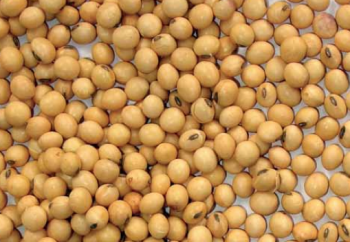Responsible Soy: Don’t Buy the Lie
Over here in Europe, we are working with other organizations on a new campaign to raise awareness about so-called “responsible soy”. As consumers, we often rely on labels to help us make an informed choice by telling us what is in the product. Companies have caught on, understanding that it has become increasingly difficult to convince the savvy consumer to buy a product they do not support. Their solution? Green-wash labels.

Over here in Europe, we are working with other organizations on a new campaign to raise awareness about so-called “responsible soy”. As consumers, we often rely on labels to help us make an informed choice by telling us what is in the product. Companies have caught on, understanding that it has become increasingly difficult to convince the savvy consumer to buy a product they do not support. Their solution? Green-wash labels.
Companies are joining up to create certifiable labels for a variety of products to convince you into thinking you are making a sustainable choice.
This year, a new label will be launched called “Responsible Soy”. The criteria for this label has been proposed by the Round Table on Responsible Soy (RTRS), composed of large ag companies including Monsanto, Cargill, BP and Nestle.
This label will continue to allow soy monocultures to expand at the expense of forests and small farms; massive pesticide spraying will continue to poison people and the environment.
Europe imports over 34 million tons of soy a year from Latin America. Most of it is used as animal feed in factory farms. A lot of industrially produced animal products come from animals that are fed genetically engineered (GE) soy. However, due to a lack of labeling, most shoppers do not even know that they are indirectly consuming GE products.
A practice that exploits the natural and human resources of the South to enable an over-production of cheap animal products in the North can never be responsible or sustainable. We should be producing our own animal feed locally for smaller sustainable farms instead of masquerading unsustainable practices as “responsible”.
Don’t let these companies trick you into believing their label will improve the environmental, economic or social side effects of industrial soy production.
Be smarter than that: Don’t buy the lie.
-Gabriella Zanzanaini, Food & Water Europe


